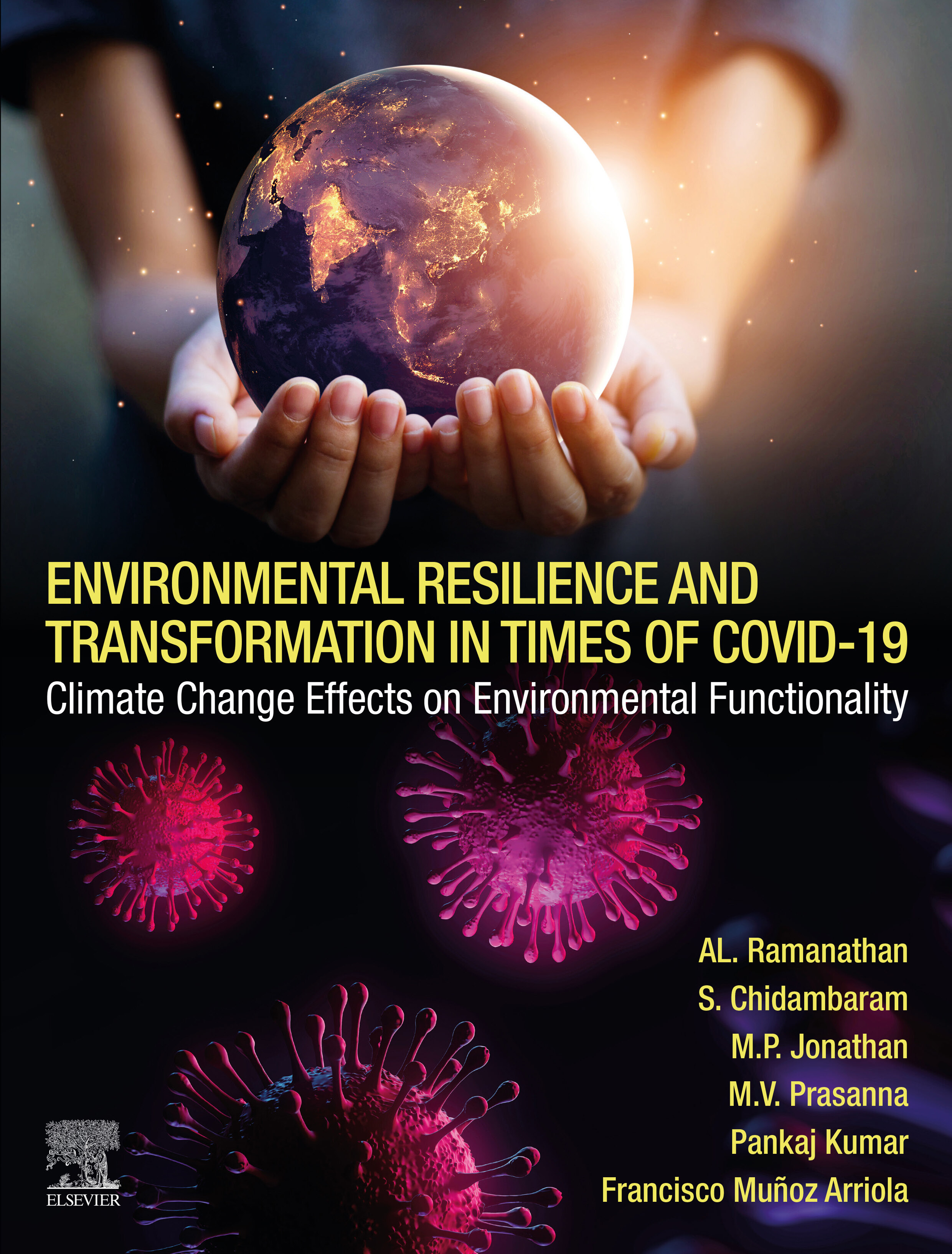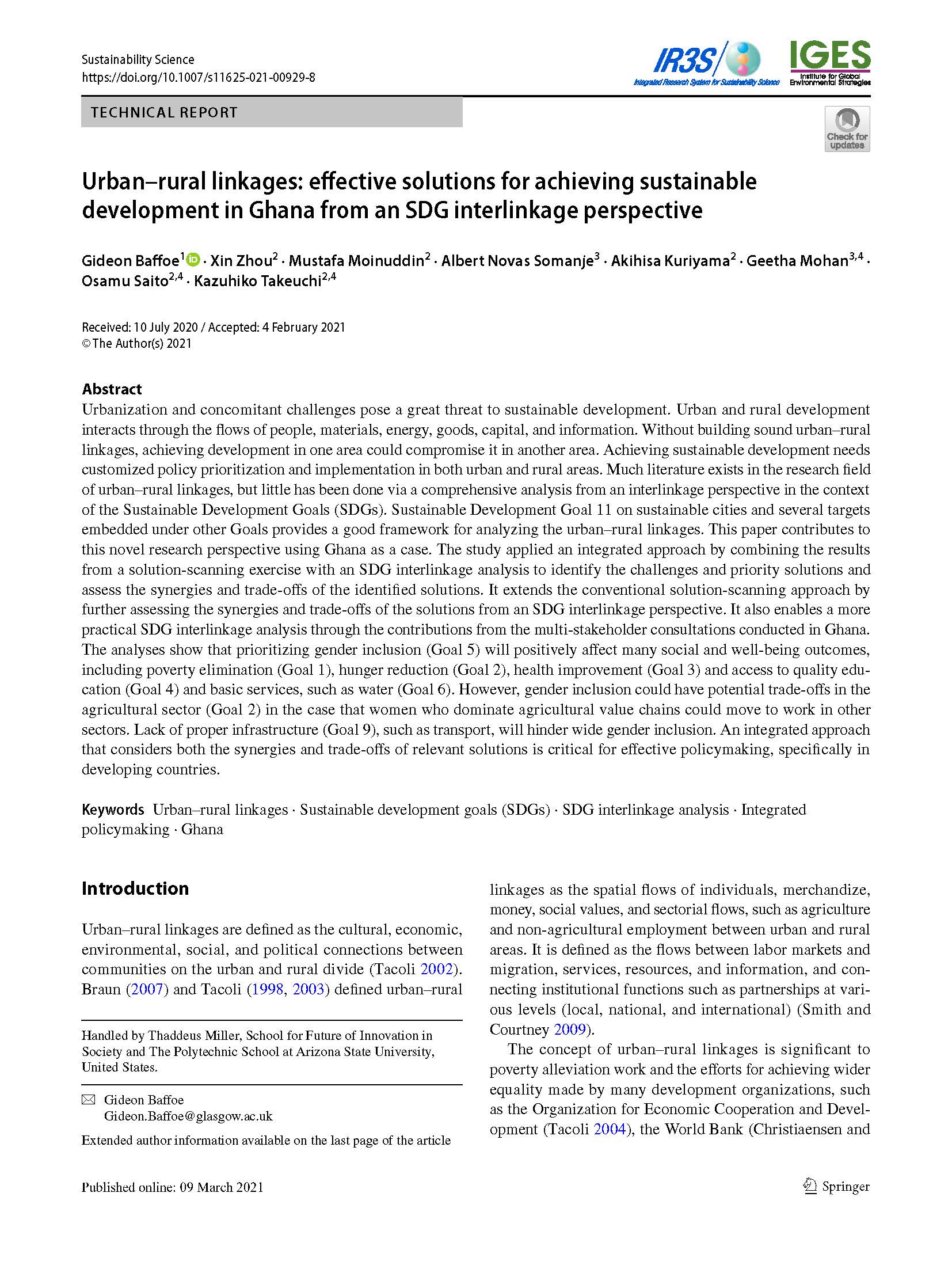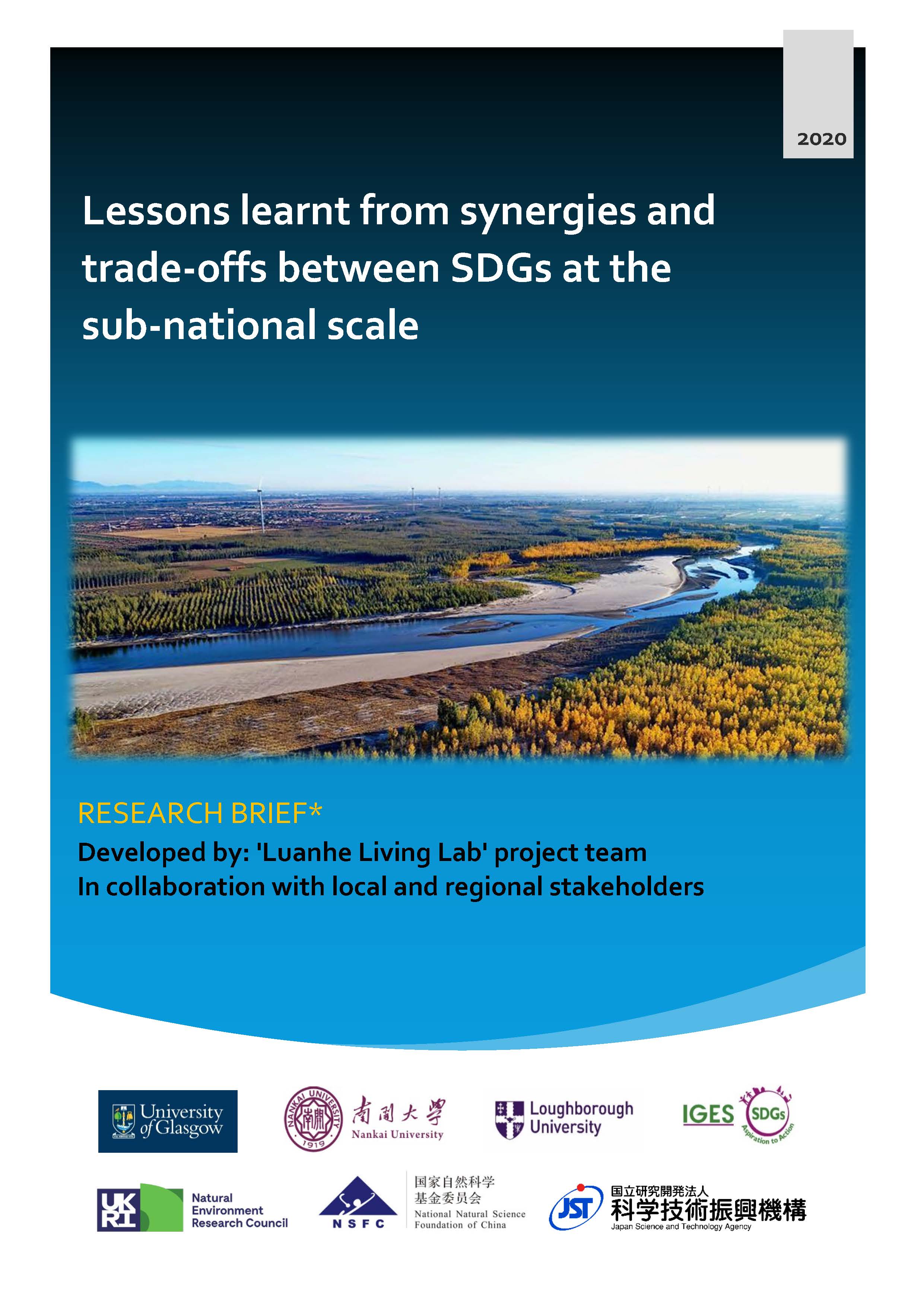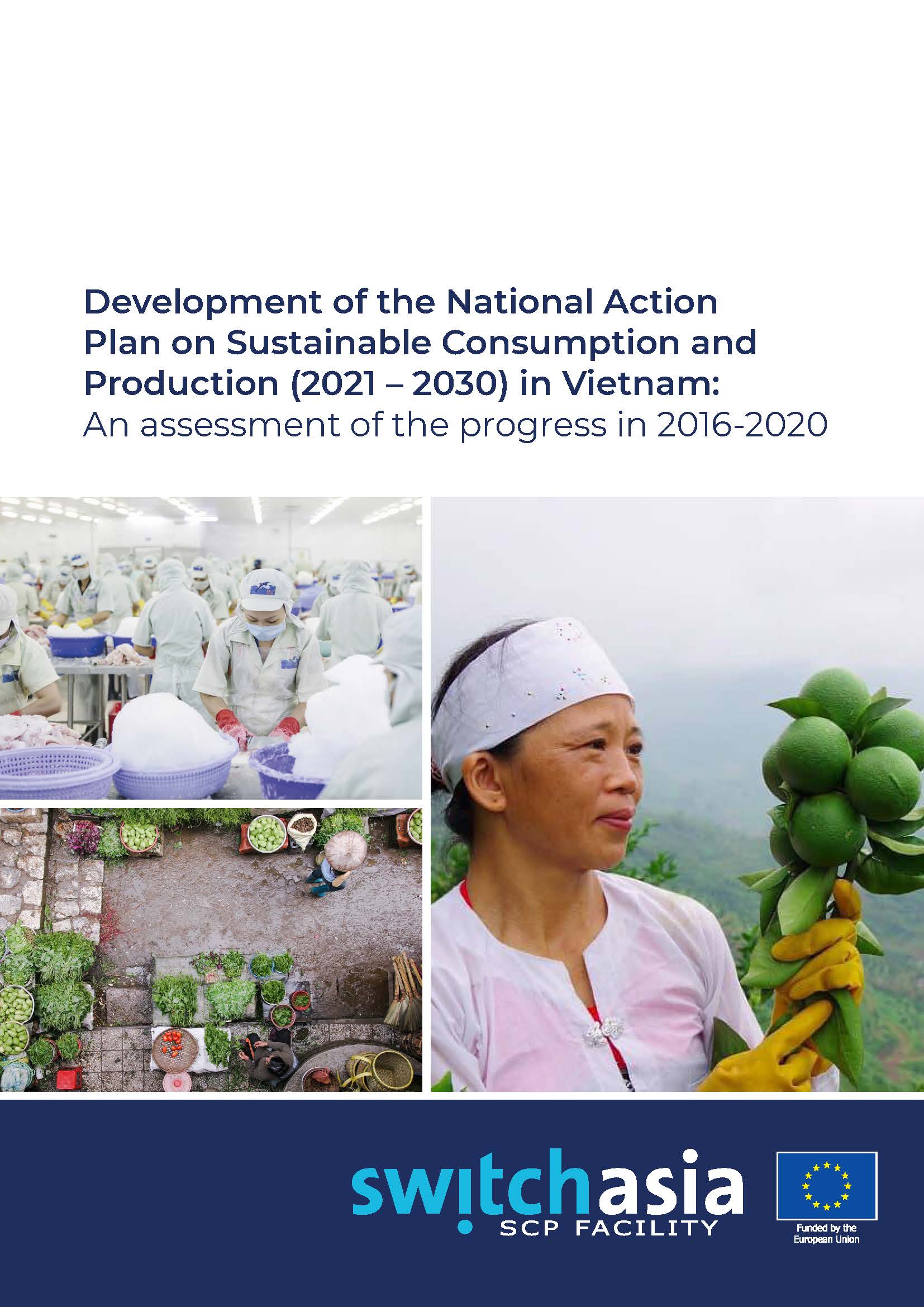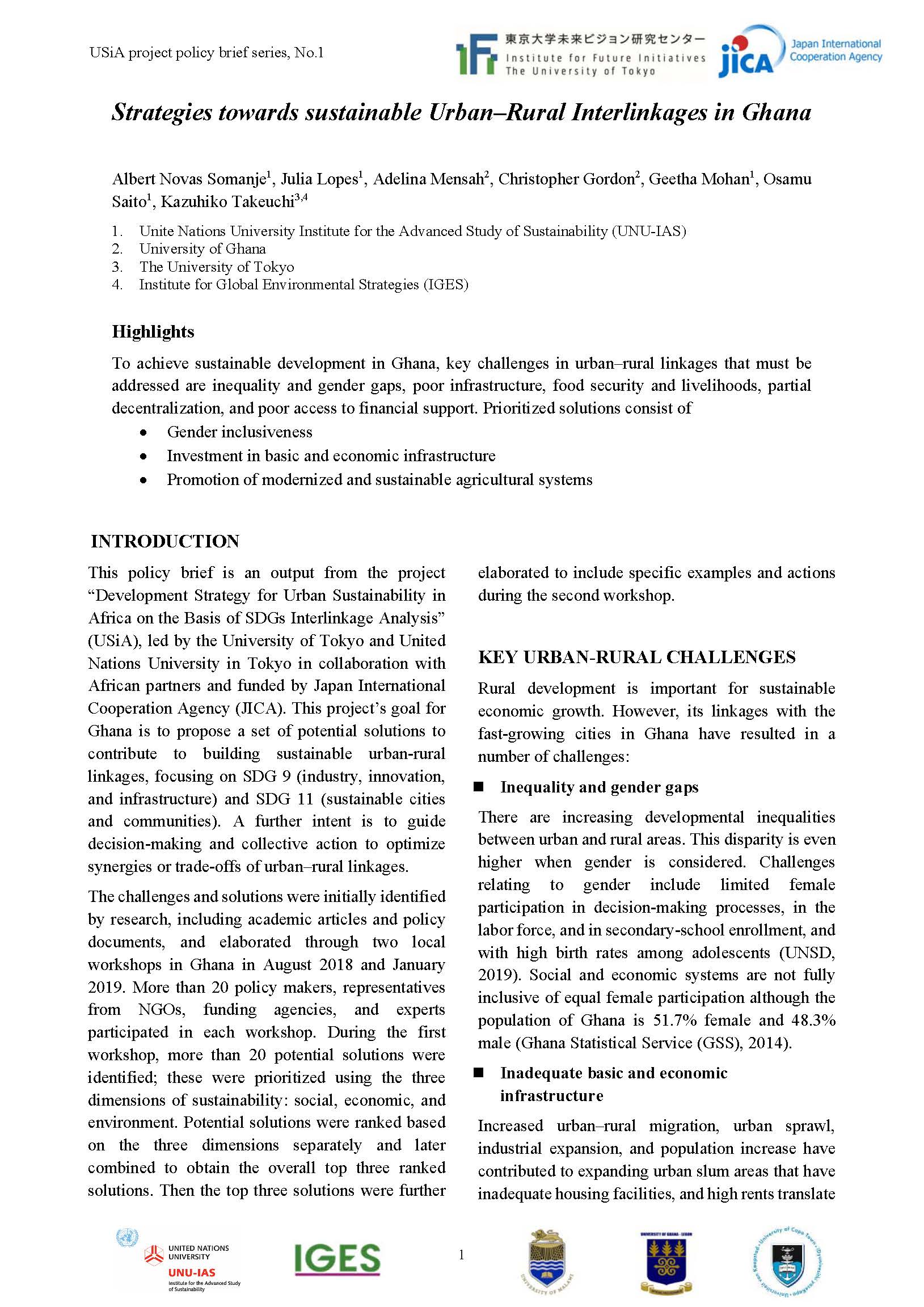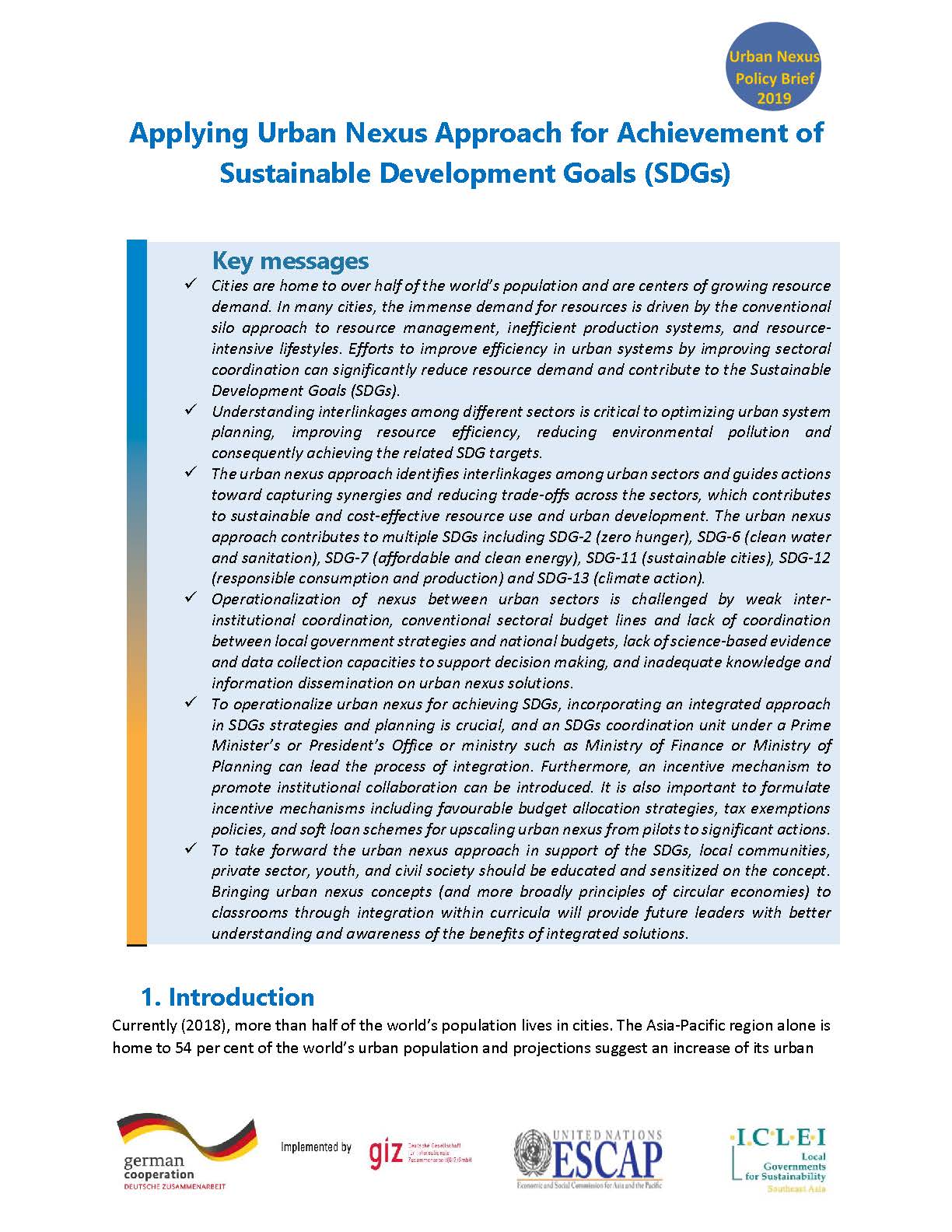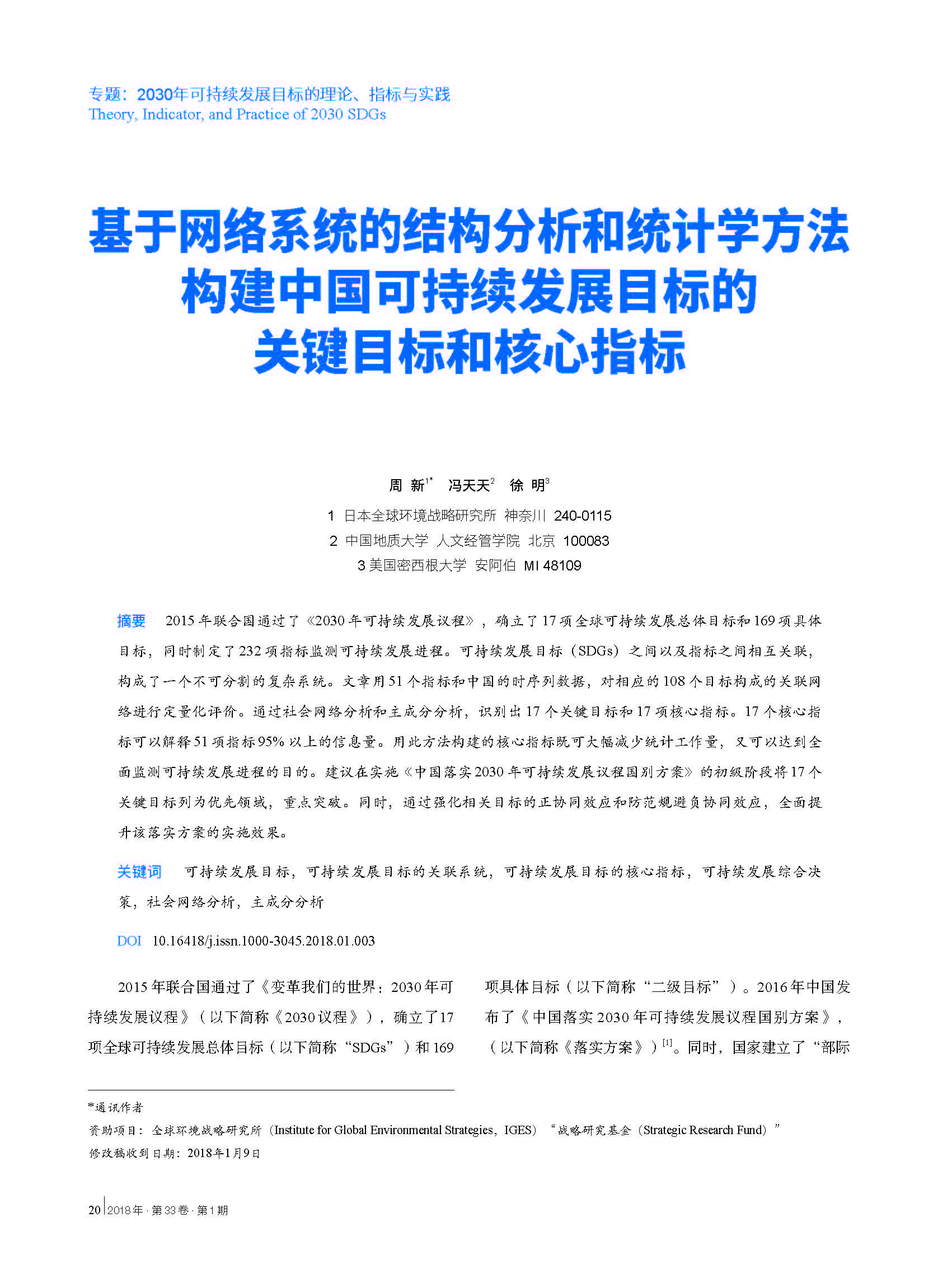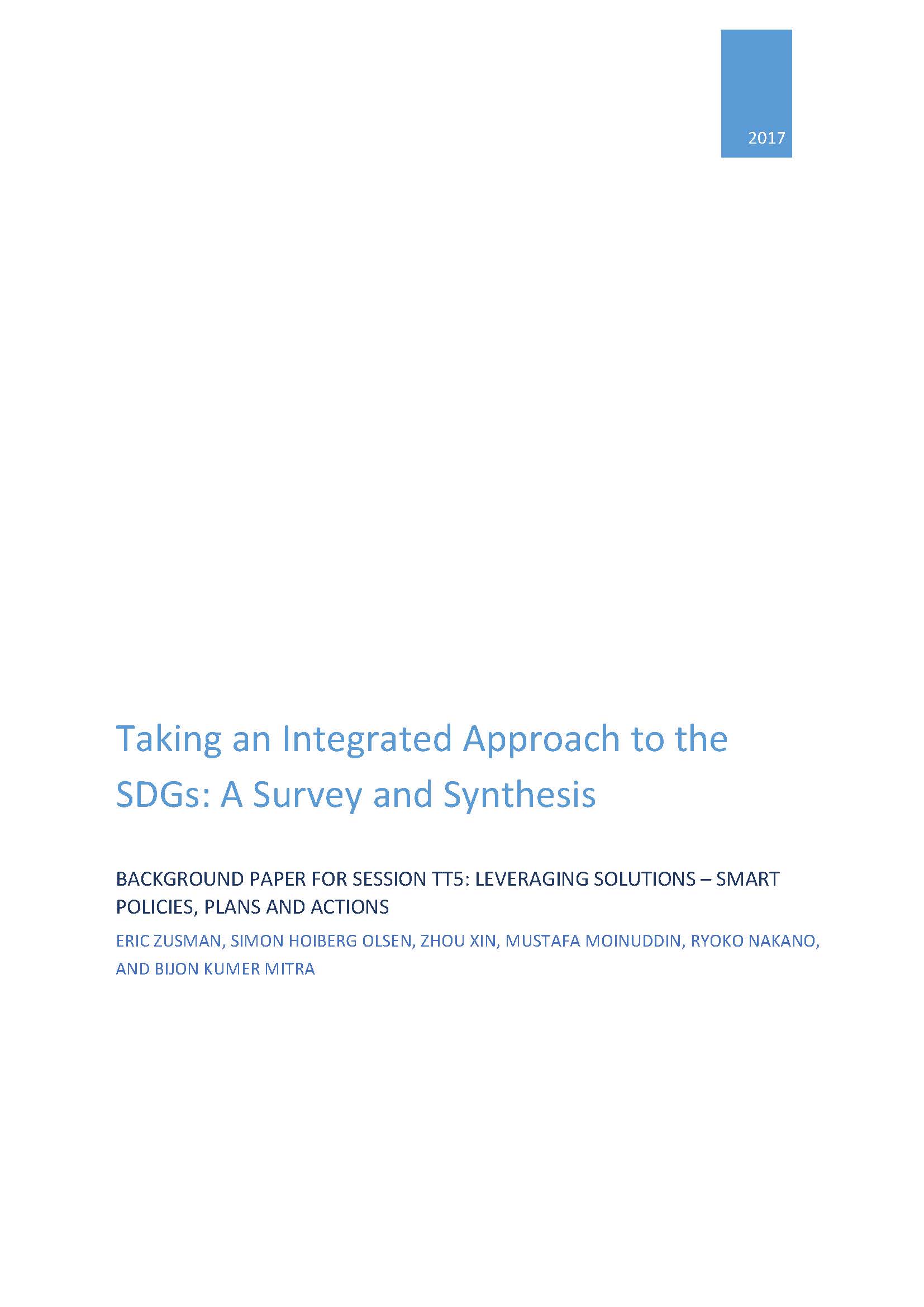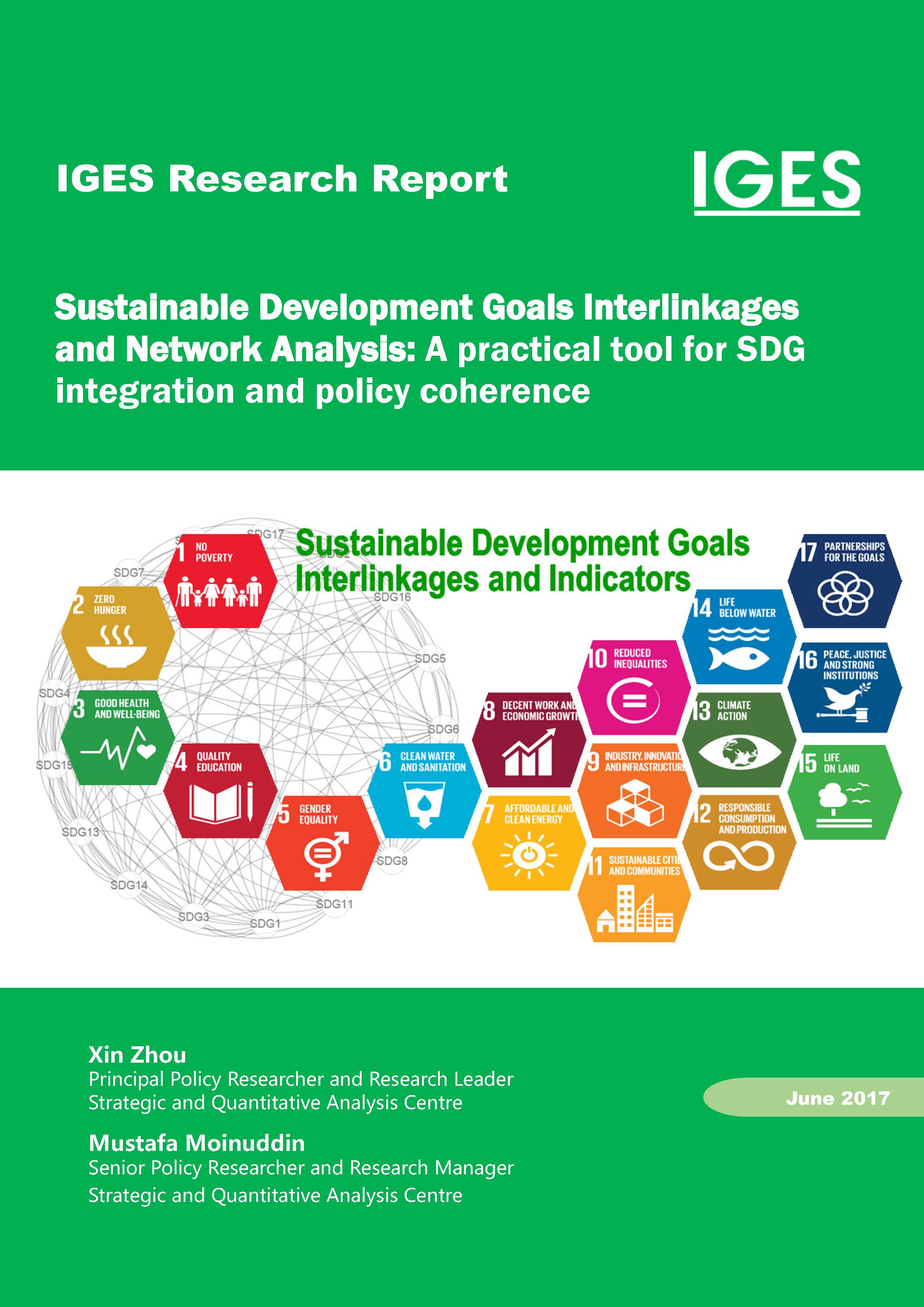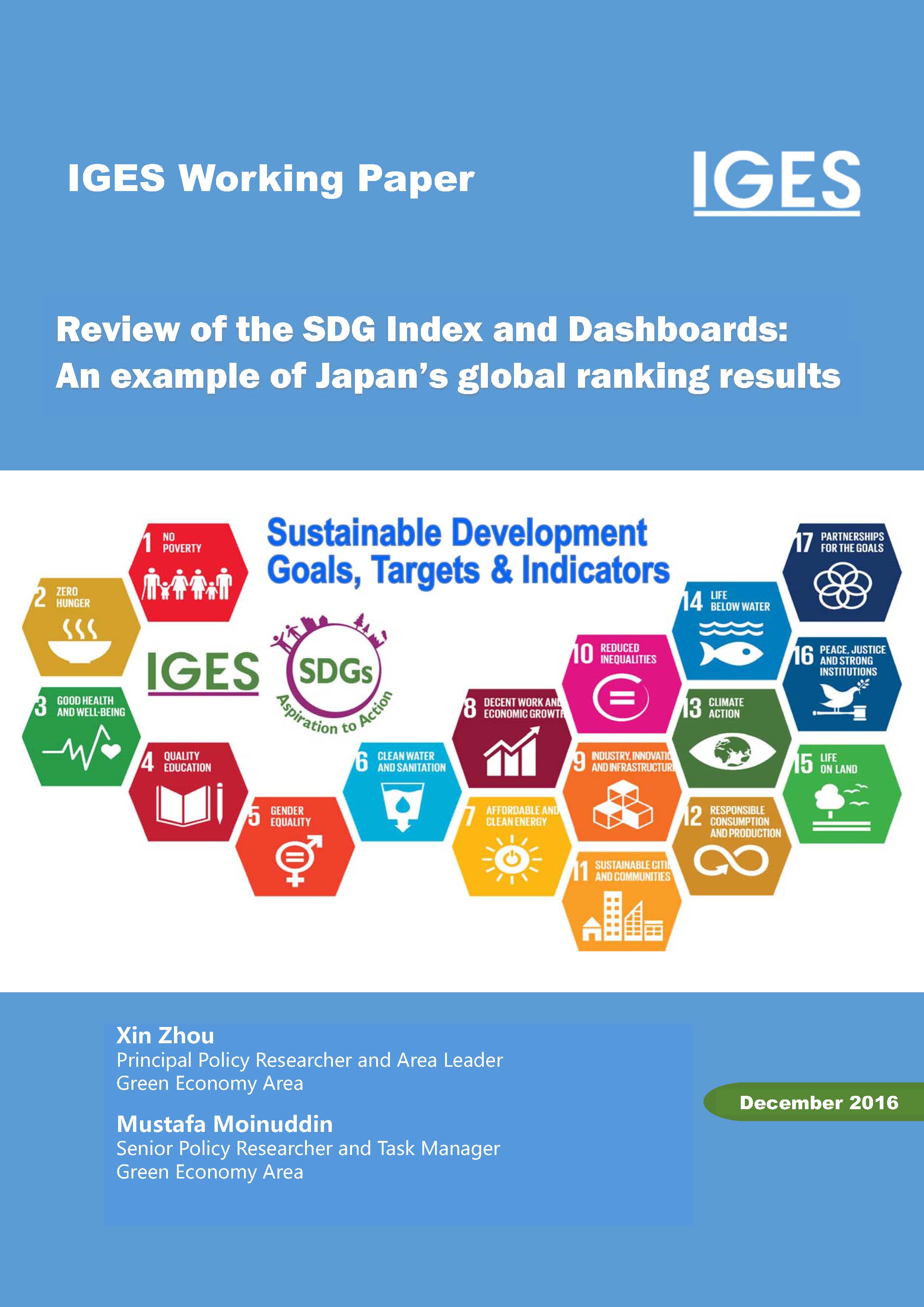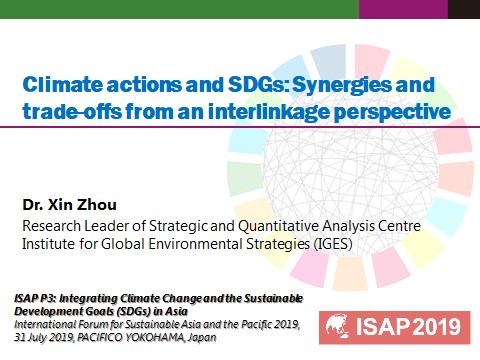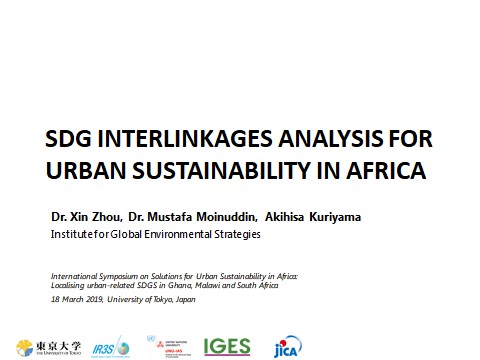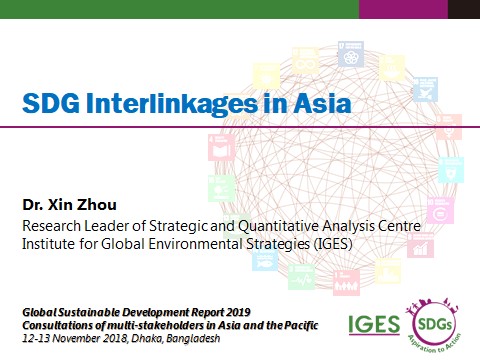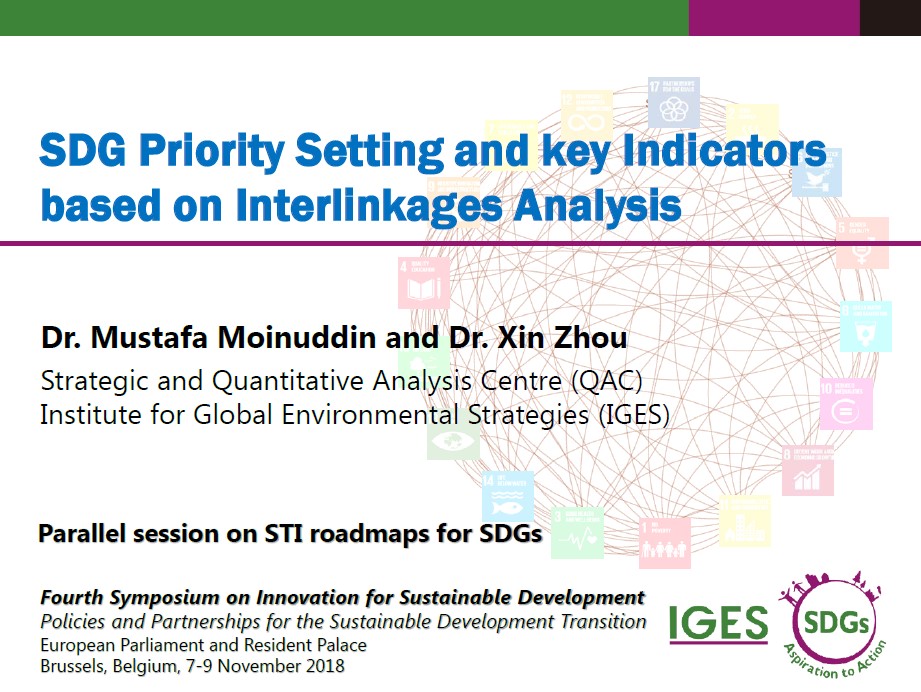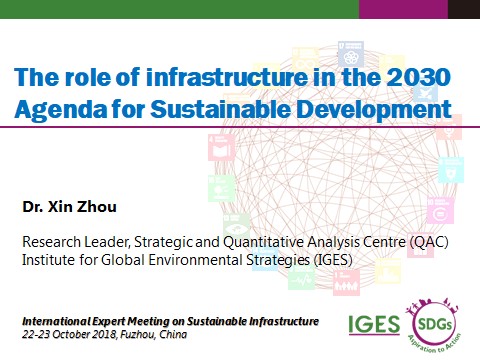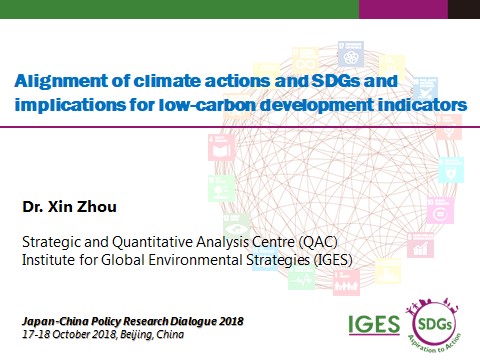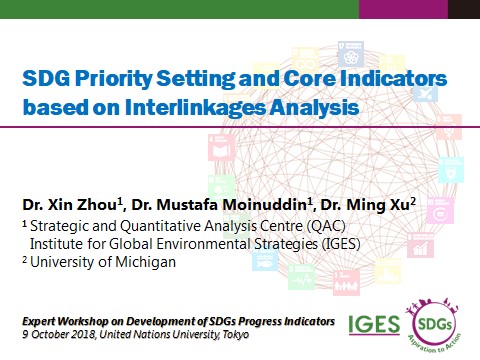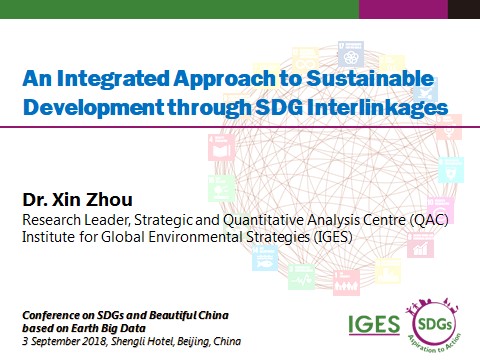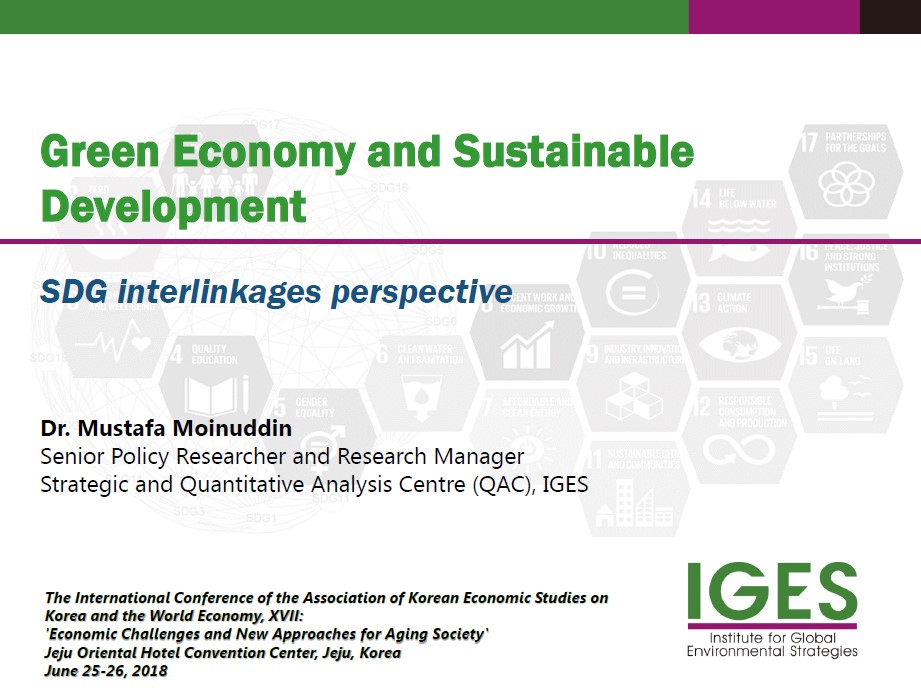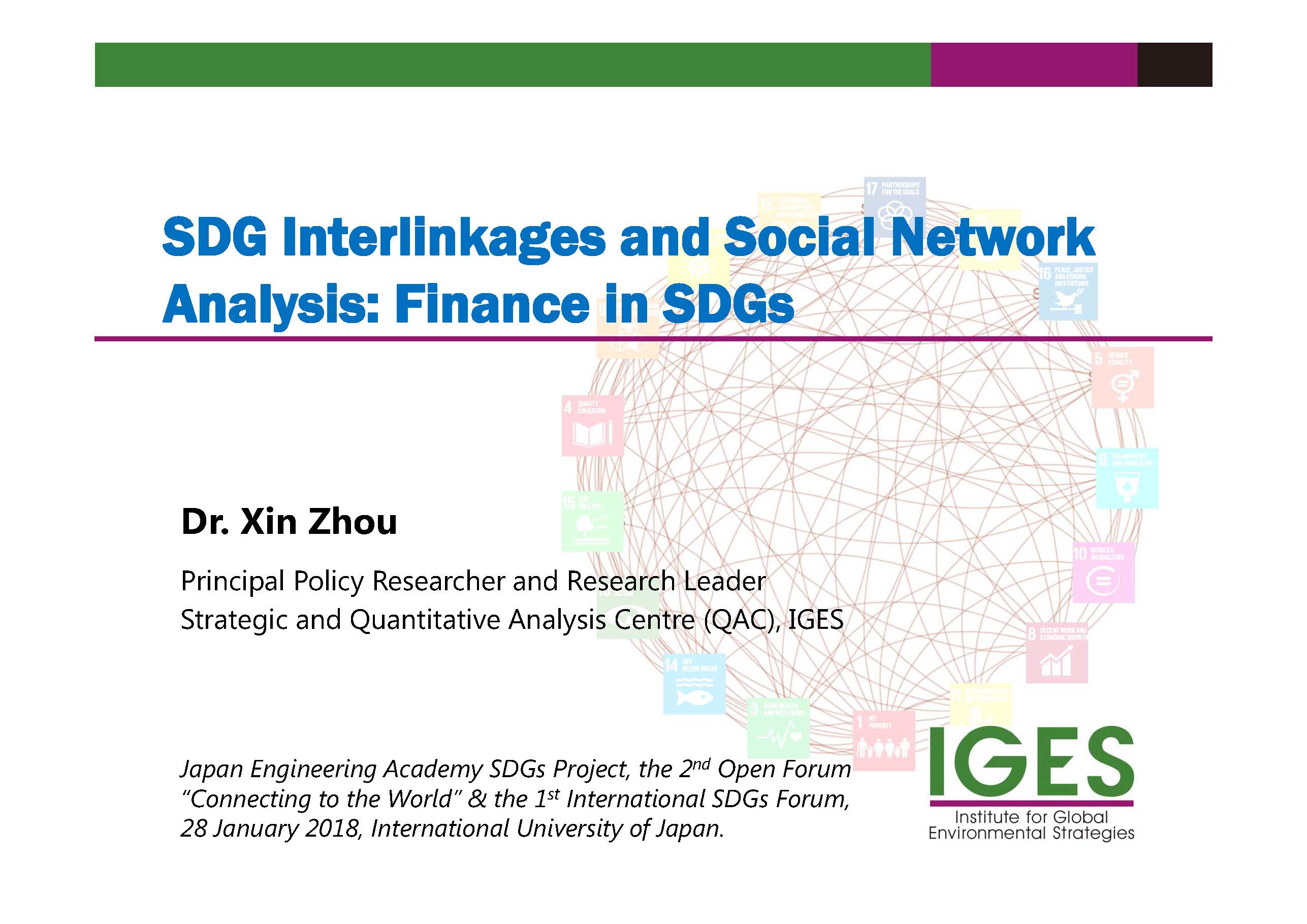Publications on SDG Interlinkages
News/events on IGES SDG interlinkages study
| IGES & SDGs Center UNPAD organised an online Focused Group Discussion on Localising the Sustainable Development Goals (SDGs) in West Java through SDG interlinkages (27 January 2021) | ||||||||||
|
||||||||||
|
As part of IGES activities supporting the localisation of the SDGs, IGES and the Center for Sustainable Development Goals Studies (SDGs Center) at Padjadjaran University started working together in developing a case study on SDGs localisation in the Indonesian Province of West Java from an interlinkage perspective. SDG integration at the local level requires a deeper understanding of the local context, particularly the specific challenges and priorities of the region, as well as local level SDG indicators and associated data. Involvement of local stakeholders is essential to gather knowledge on these issues and priorities. To this end, IGES and the SDGs Center jointly conducted online consultations with stakeholders comprising a questionnaire-based survey followed by a focused group discussion (FGD) meeting. The detailed questionnaire survey focused on the status quo of SDGs planning and implementation in West Java, investigating specific challenges in the economic, social and environmental spheres as well as the context-specific identification of SDG interlinkages. Around 100 participants including West Java’s local policymakers and practitioners, private sector representatives and academia joined the survey conducted in December 2020. Once the online survey was completed and a draft report was compiled, a selected number of survey participants were invited to join a half-day FGD meeting on 27 January 2021 to share the findings of the survey for validation and to receive feedback from them. The FGD meeting included an overall presentation of results from the online survey, a presentation on SDG planning and implementation in West Java (presented by BAPPEDA, the Regional Planning and Development Body of West Java), followed by a deep-dive, theme-based discussion of the survey findings, to clarify some results and identify important issues and solutions for West Java in the economic, environmental, social and climate change areas.
|
||||||||||
|
The findings from the stakeholders’ consultation through the survey and FGD meeting will provide input for a detailed case study on SDG localisation that is currently being conducted by IGES based on the
SDG Interlinkages Analysis & Visualisation Tool.
|
||||||||||
|
Understanding SDG Synergies and Trade-offs for Sustainable, Resilient and Inclusive Development
IGES International Forum for Sustainable Asia and the Pacific (ISAP) 2020 , Thematic Track Session 4, 10 November 2020, PACIFICO Yokohama, Japan
|
||||||||||
|
Understanding the synergies and trade-offs between the Sustainable Development Goals (SDGs) is important to ensure policy coherence across sectors and to balance the three dimensions of sustainable development. The COVID-19 pandemic and the evolving global crisis has affected the livelihoods and daily lives of billions of people around the world jeopardising decades of progress in many social and economic areas. There are now urgent calls for a transformative change for building a more sustainable, resilient and inclusive society. The SDGs remain more relevant than they were before COVID-19 in guiding the development towards long-term resilience and sustainability. It is even more important than ever to understand the synergies and trade-offs between SDGs to support the required transformative change. But how do synergies and trade-offs operate and impact on achieving SDGs in 2030? How can existing frameworks, models and tools for the analysis of synergies and trade-offs be improved by incorporating the knowledge from the COVID-19 crisis? How can we use the knowledge and analysis of synergies and trade-offs to support practical policymaking?
|
||||||||||
|
The session addressed these three questions. Experts from Europe and Asia provided their knowledge and insights on these issues, and more importantly, they provided solutions or make suggestions to utilise the knowledge of synergies and trade-offs between SDGs to support the desired transformative change towards the world we aspire to.
|
| IGES conducted a capacity building training workshop on SDG Interlinkages Analysis & Visualisation Tool organised by the Center for Sustainable Development Goals Studies (SDGs Center), University Padjadjaran, at the Luxton Hotel Bandung, Indonesia, 16-17 October 2018 | ||||||||||
| Following some initial consultations with and an invitation from the Center for Sustainable Development Goals Studies (SDGs Center) of Universitas Padjadjaran (UNPAD), IGES conducted a training workshop on the SDG Interlinkages Analysis & Visualisation Tool, a pioneering tool developed by IGES to support SDG policymaking with quantifying, visualising and analysing the interlinkages among the SDG targets. The 1.5 day training session took place at the Luxton Hotel Bandung and was attended by around 25 SDG professionals from the Indonesian SDGs Secretariat at BAPPENAS, university teachers, local government officials, and other institutions. Dr. Mustafa Moinuddin, Senior Policy Researcher at IGES Strategic and Quantitative Analysis Centre, provided the training. [Read more] | ||||||||||
|
||||||||||
|
Practical guidance for SDG integration through interlinkages quantification and visualisation
IGES International Forum for Sustainable Asia and the Pacific (ISAP) 2018, Thematic Track Session 7, 19 July 2018, PACIFICO Yokohama, Japan
|
||||||||||
|
SDGs interact with each other forming an indivisible framework. Without taking into account the synergies and trade-offs among the goals and between the targets, SDGs cannot be achieved in a harmonised way with the promise of leaving no one and no area behind. To facilitate integrated SDG policymaking and implementation, IGES developed an innovative tool on
SDG Interlinkages Analysis & Visualisation with the potential for supporting practical policymaking on priority setting and institutional arrangement. A Thematic Track session (TT-7) was organised as part of the International Forum for Sustainable Asia and the Pacific (ISAP) 2018 to draw the attention from policymakers and the representatives from business sectors on the importance of SDG interlinkages for integrated policymaking and implementation.
|
